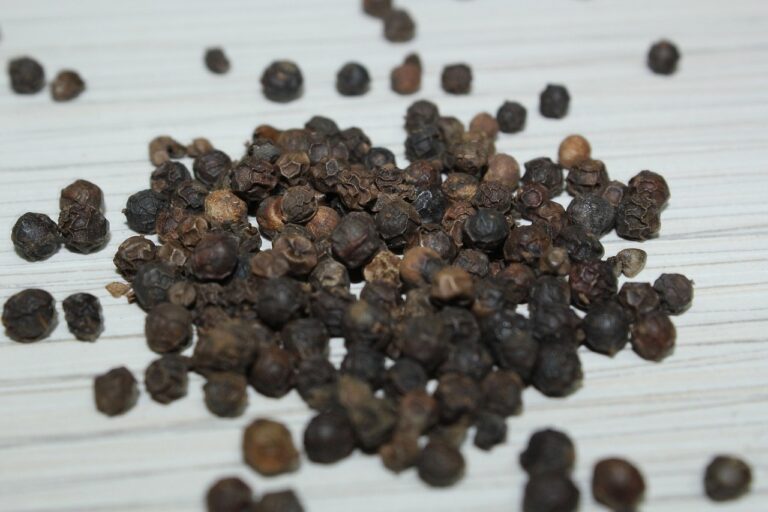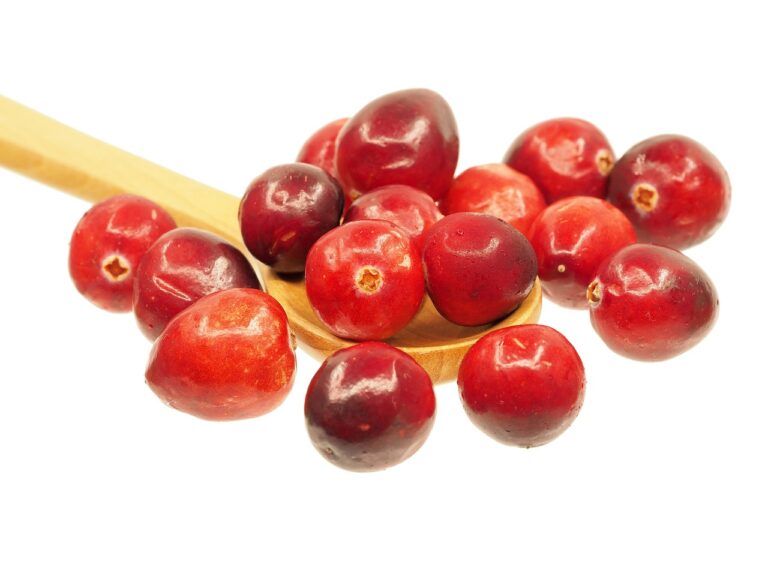10 Fantastic Reasons Why You Are Craving Bacon

Bacon is more than just a popular breakfast item; it’s a cultural phenomenon that tantalizes taste buds worldwide. Its smoky, salty goodness has a way of triggering cravings unlike any other food. But why do we crave bacon so intensely? This article delves into the sensory and psychological factors behind bacon cravings, offering insights into why this cured meat holds such sway over our appetites.
Why Am I Craving Bacon?
1. The Irresistible Aroma
The scent of bacon cooking is unmistakable and has the power to draw people to the kitchen from all corners of the home. This aroma, a complex blend of fats rendering, sugars caramelizing, and proteins undergoing the Maillard reaction, creates a symphony of smells that is hard to resist. The smell of bacon cooking can trigger memories of hearty breakfasts and family gatherings, making the craving for bacon not just about taste but also about nostalgia and emotional comfort.
Moreover, the human nose is highly sensitive to the compounds released during the cooking of bacon, which are scientifically found to stimulate appetite and desire for food. This olfactory allure is a key reason why the craving for bacon can feel so powerful and immediate.
2. The Perfect Texture
Bacon’s texture contributes significantly to its crave-worthy status. The contrast between crispy edges and chewy fat is uniquely satisfying. The crunch of well-cooked bacon followed by the melt-in-your-mouth fat provides a sensory experience that few other foods can match. This combination of textures appeals to our innate preference for foods that offer a complex eating experience, ensuring that once we start eating bacon, it’s hard to stop.
The pleasure derived from chewing bacon, with its satisfying crunch and rich fat, also releases endorphins in the brain, reinforcing the craving through positive feedback. This texture-induced happiness makes bacon not just a treat for the taste buds but also for the psyche, encouraging repeated indulgence.
3. The Salt Factor
Humans have a built-in craving for salt, a mineral essential for life but often scarce in the diets of our ancestors. Bacon, with its significant salt content, hits this evolutionary sweet spot, making it incredibly appealing. The salt not only enhances bacon’s flavor but also triggers the release of dopamine, a neurotransmitter associated with pleasure and reward, which can make the craving for bacon feel as urgent as it is enjoyable.
Additionally, salt helps to preserve bacon, giving it a longer shelf life and a deep, concentrated flavor that is both complex and satisfying. This combination of utility and taste has made bacon a staple in cuisines around the world, ensuring its place in our diets and our cravings.
4. The Fat Content
Fat is a major flavor carrier, and bacon’s high fat content is central to its delicious taste. The fat in bacon not only contributes to its mouthwatering aroma but also coats the palate with flavor, making each bite as rich and satisfying as the first. This intense flavor experience can lead to powerful cravings, as our bodies and brains are hardwired to seek out high-energy foods.
Moreover, the fat in bacon stimulates the production of cholecystokinin (CCK), a hormone that induces a sense of satiety and pleasure. This biological response can make bacon feel particularly rewarding to eat, encouraging cravings and consumption.
5. The Umami Flavor
Bacon is rich in umami, the so-called fifth taste, which is savory and deeply satisfying. Umami flavors are known to enhance appetite and increase the feeling of fullness, making foods with high umami content, like bacon, particularly crave-worthy. The presence of amino acids and nucleotides in bacon contributes to its umami profile, adding depth to its flavor that goes beyond simple saltiness or fattiness.
This complex flavor profile can make bacon an irresistible addition to a wide range of dishes, enhancing their taste and making them more satisfying. The craving for bacon can thus be seen as a craving for a more flavorful and fulfilling eating experience.
6. The Versatility of Bacon
Bacon’s ability to complement a wide variety of foods makes it a versatile ingredient that can trigger cravings across different meals. From breakfast dishes like pancakes and eggs to lunchtime sandwiches and salads, or even in sophisticated dinner recipes, bacon adds a depth of flavor that is hard to replicate with any other ingredient. This versatility means that bacon can become a crave-worthy addition to almost any meal, making it a constant temptation in the kitchen.
The adaptability of bacon also means that it can satisfy a wide range of flavor preferences, from sweet to savory, smoky to salty. This broad appeal contributes to the frequency and intensity of bacon cravings, as it can fit into so many of our favorite foods and dishes.
7. The Quick Satisfaction
In today’s fast-paced world, the quick and satisfying nature of bacon is a significant factor in its crave-ability. Bacon can be cooked in just a few minutes, providing instant gratification for those hunger pangs. The immediate reward of eating bacon, coupled with its rich flavor and satisfying texture, can make the craving for it particularly urgent and compelling.
The convenience of bacon, available precooked or as a quick-cooking ingredient, means that it is often a go-to choice for a fast and flavorful meal or snack. This ease of preparation and consumption can make bacon cravings more frequent, as the barriers to indulgence are low.
8. The Social Aspect
Eating bacon is often a shared experience, whether it’s at a family breakfast, a brunch with friends, or a barbecue. This social aspect can amplify cravings, as the enjoyment of bacon becomes associated with positive social interactions and communal pleasure. The shared anticipation and enjoyment of bacon can make its flavor even more memorable and crave-worthy.
The ritual of cooking and eating bacon together can also reinforce its appeal, creating a sense of tradition and belonging that is linked to the food itself. This social reinforcement can make cravings for bacon not just about the food but about the desire to recreate cherished moments and connections.
9. The Cultural Icon
Bacon has transcended its role as a food item to become a cultural icon, celebrated in everything from internet memes to festival themes. This cultural saturation can amplify cravings, as the constant reminders of bacon in media and conversation keep it at the forefront of our minds and appetites. The phenomenon of “bacon mania” has made bacon more than just a food; it’s a symbol of indulgence and pleasure, making the craving for it part of a larger cultural moment.
The celebration of bacon in popular culture can also create a sense of belonging among its fans, making the craving for bacon a shared experience that connects people through a common love for this unique food.
10. The Psychological Reward
Finally, the craving for bacon can be understood as a search for psychological reward. The combination of flavor, texture, and aroma provides a multisensory pleasure that can lift spirits and comfort the soul. In times of stress or sadness, the craving for bacon can be a craving for this emotional uplift, making bacon a go-to comfort food for many.
The anticipation of eating bacon, with its promise of pleasure and satisfaction, can act as a powerful motivator, driving cravings and consumption. This psychological aspect of bacon craving highlights the complex interplay between our senses, emotions, and food preferences, making bacon a uniquely compelling culinary temptation.
Craving Bacon During Pregnancy
Craving bacon during pregnancy can be attributed to several factors, primarily involving hormonal changes and nutritional needs. The hormonal fluctuations experienced during pregnancy can alter taste preferences and intensify cravings for specific foods, including salty and savory items like bacon. Furthermore, bacon’s high content of protein and fats might be appealing to pregnant individuals seeking to satisfy increased caloric and nutritional needs to support fetal development.
Additionally, cravings for bacon during pregnancy can sometimes signal a need for more sodium in the diet, as the body’s blood volume expands and requires more electrolytes to maintain balance. The texture and smell of bacon can also play a significant role in cravings, as pregnant individuals may have heightened senses of smell and taste, making the aroma of bacon particularly enticing. However, it is important for pregnant individuals to consume bacon in moderation due to its high sodium and saturated fat content, and always ensure it is well-cooked to avoid any foodborne illnesses.
In conclusion, the craving for bacon is a multifaceted phenomenon, driven by a combination of sensory, psychological, and cultural factors. Whether it’s the aroma, the texture, the salt, the fat, or the umami flavor, each aspect of bacon plays a role in making it one of the most crave-worthy foods. Understanding these factors can help us appreciate why bacon holds such a special place in our hearts and our diets.






